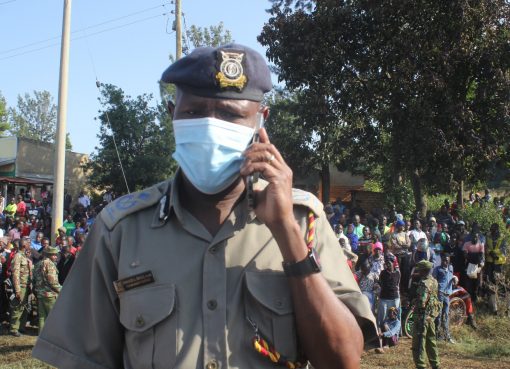At first, she would sleep after midnight and often wake up at 3 am. Initially, nobody paid any attention to this new sleeping habit.
A few weeks after the onset of sleepless nights, 38 year old Grace Wanjiru Wangare, resorted to taking sleeping pills which at first gave her “deep sleep”. Nevertheless, with time it dawned on her that she needed a higher dosage of the pills to experience “good sleep”.
As Ms Wangare’s sleeping pattern deteriorated, she became ill-tempered and frequently yelled at anybody who got into her path.
Eventually she was jolted to seek medical advice when she started spending entire nights wide awake, a situation that rendered her drowsy during the day and even affected her walking gait.
“After everybody else had gone to bed, I would keep myself busy reading novels, cleaning my house and listening to music. In the dead of the night, I hooked myself to my smart phone sending lengthy and endless e-mails and browsing social media platforms,”
She adds with a chuckle “Some of my friends became infuriated because I would call them at odd hours and would only stop when I ran out of airtime.
The condition has a way of seeping out life from your day to day activities. When your body doesn’t get enough rest, you will be constantly irritable and the people around you will start noticing and avoiding you.
After years of pain and search for cause of her sleep disorder that had started during Ms Wangare’s teenage years, doctors told her that she had Insomnia, a condition she had never heard about.
Ms Wangare is now a woman on a mission to empower those who suffer from the condition to live their lives to the fullest and sensitise and support the families and individual who interact with persons suffering from insomnia.
She says the condition is less understood in the Country as it has not been recognised by medical practitioners and the government as a chronic medical disorder that has significant personal and societal implications.
“There is need to invest more resources in research and training, as insomnia leads to serious social consequences such as marital disharmony, depression and low productivity at workplaces,” avers Ms Wangare.
According to Dr Peter Muthinji, a Specialized Clinical Physiologist (Neuro) and Somnologist, Kenya has fewer than five specialists trained to diagnose and help manage the condition.
He calls on policy makers to include it among chronic ailments such as diabetes, hypertension, and asthma among others.
The medic states that the condition is categorised as Primary if sleep problems are not linked to any health condition or other problem and secondary which is the most common is due to other conditions, including medical and mental disorders, adverse life events or untenable social circumstances.
He indicates that an average adult will only lead a normal life if he achieves about 6-8 hours of sleep, adding that although causes of some form of insomnia are unclear, 80 percent of insomnia is due to or associated with major depressive or medical disorders. He says more women than men are afflicted by the condition.
The Neurologist notes that though insomnia is largely misunderstood, it is the most prevalent sleep disorder in the general population, affecting at least 10 percent of adults with a third to half of the adult population reporting a few nights of insomnia symptoms in a year.

Dr Muthinji, who also lectures at the Kenyatta University School of Medicine, says excessive daytime sleepiness, depression, headaches, irritability and lack of concentration are common in patients with insomnia.
“Persistent insomnia symptoms increase the likelihood of developing a major depression within a 1-year period by a factor of four. People with chronic insomnia are at high risk for obesity, high blood pressure, diabetes and lowered immunity.
There are many other cases of insomnia which range from anxiety, to grief reactions among others. In all cases, the true cause of the insomnia should be established before embarking on any form of treatment.
“When a person who has enjoyed a good sleep pattern suddenly finds it difficult to sleep, then a mental health specialist might be of help,” explains Dr Muthinji.
He adds that anxiety, psychosis or bipolar disease, are some of mental illness that can cause insomnia.
Dr Muthinji notes that medical conditions that cause pain, back-ache or some discomfort, medicine that keep someone alert, use of substances like khat (miraa), among other stimulants will affect sleep.
“Other causes include snoring or sleep apnea, which is shortage of breath while asleep while risk factors for the condition include increasing age, female gender, and substance use, change of shifts at workplace, and unemployment and lower socioeconomic status.
Victims can be trained on sleep hygiene which entails maintaining habits that promote a clear sleeping pattern. Light meals should be taken at least three hours before bedtime while coffee and alcoholic beverages are discouraged,” he observes.
Dr Muthinji advises that laptops and mobile phones should be avoided at night while good exercise stimulates the brain and allows the body to rejuvenate, a process that soothes sleep.
“The most important factor of sleep hygiene that people tend to ignore is the need to sleep in a place without noise. The second is about rhythm. Go to bed at the same time every night. This is because you then set the biological clock into a rhythm that the body is able to predict.
It is easier for majority of people to sleep in a dark room. Lights in corridors or your TV sets, phones or laptops cause delay in the onset of sleep, which causes anger and a rise in adrenaline and further delay in sleeping,” elaborates the Neurologist.
“If your resting place is not comfortable enough, getting well-rested is close to impossible. Ensure your mattress is comfortable and your pillow is fluffy enough to help your sleeping posture at night,” he adds, ensure your sheets are clean and fresh, it is easy to relax and fall asleep faster when your beddings are welcoming.”
By Anne Mwale




